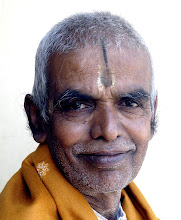HUBLI, Jan 19, 2011
The post globalization era in the country has witnessed the collapse of liberal democracy and typical has been the case of Karnataka, which is under the BJP rule for the past more than two years.
An assertion to this effect has been made in a paper presented at the 34th Indian Social Science Congress held at Guawahati in the last week of December, by Prof. K S Sharma , Senior Vice President of the Indian Academy
The theme of the social science congress was “India
The three political parties in Karnataka namely the ruling BJP, the opposition Congress and the JDS have contributed to the emerging scenario by their acts of sins of omission and commission, though major share of the blame has to be shouldered by the BJP. And the role of the constitutional authority like the Governor has not been above reproach, says Dr.Sharma.
Dr Sharma has catalogued a long list of the happenings in Karnataka, to buttress his point. It includes :
· Bad beginning: The open dissidence by a senior leader miffed over his noninclusion in the cabint; and one farmer getting killed a police firing even a selfprofessed profarmer government assumed office:
· Open rebellion by the Reddy brothers bordering on jolting the government,
· Means more foul than fare used by the BJP to gain majority in the 224 member assembly and the phenomenon of the opposition legislators resigning from their seats, being rewarded with posts of ministers even before they could get themselves elected on the BJP ticket., which has now become a national phenomenon.
· Continued rub with Governor, ever since he refused to address the joint session called by the new government, unless the Chief Minsiter proves his majority and on myriad other subjects, on which there have been clashes, with the Governor openly expressing his dissatisfaction over the performanance of the government, while government launches campaign for his removal.
· A government cast in caste mould, contrary to what Lord Balfour had said of a bureaucracy having rigid neutrality and rigorous impartiality and not withstanding what late Ramakrishna Hegde had told his colleagues not to choose any one from the caste to occupy position of office under them.
· Governor’s patently unconstitutional action giving direction to the Speaker on how to conduct the proceedings of the vote of confidence in the assembly, after a set of eleven BJP legislators give a letter withdrawing their confidence in the leadership of Yeddyurappa. This is despite the known and proved constitutional position of the Speaker writ being supreme in the conduct of the proceedings of the house. Governor directs the Speaker to conduct proceedings based on the statuquoante position as for as participation of the dissident legislators in the proceedings are concerned. And his recommendation for the imposition of the Presidents rule being turned down by the Central Government.
· Suicide by the farmers and communal flare-ups attacks on churches, moral poling by the fundamental groups and the related matters. And attempts to talibanise, by advising Hindus not to mix with Muslims and avoid pubbing, partying and dancing in dark.
· Long list of continued onslaughts on the statutory and constitutional institutions like the Lokayukta,; State Human Rights Commission, the Backward Classes Commission, the Child Rights Commission, the ending of the terms of the Somasekhar Commission on the disturbances in Mangalore, even as the latter was preparing to give a final report, with the interim report not going in favour of the government. ,
· The running battle with LOkayukta has assumed legendary dimensions, starting with the government sitting on report on the illegal mining activities involving the Reddy brothers, the latest move being appointing a separate judicial commission, even as the Lokayukta had been asked to probe into charges of nepotism, favouritisim and corruption
· The opposition in Karnataka comprising of the Congress and JDS, being more interested in unseating the government rather than playing the role of a constructive opposition.
Dr Sharma has noted in the final analysis that the globalization has led to more number of land scams, nepotism and favouritism in the allotment sites and corrupt practices, to the extent of Karnataka acquiring a dubious distraction of being the No. 1 corrupt state in the country.
But the paradoxical part has been that the reputation this government has acquired in myriad matters has had no impact on the elections to the various bodies held during the period, to the assembly, the Legislative Council, the parliament, the Brihat Bangalore Maha Nagar palike, the latest being the elections for the zilla and taluk panchayats.
As a consequence, democracy has been equated with electoral politics and the liberal democracy has been a casualty, even as the states standing in the Human Development Index in the country puts it at 25th place. Fascism is raising its ugly head. And there is no real democracy in the state. ” This model of democracy can be witnessed on a larger scale in the whole country.”
The question Dr Sharma raises is what next? The theory of the “end of history” as propounded by the capitalists and imperialists has come to an end. The socialist model appears to be the only model available. Bu it is imperative that faults and blunders committed in Soviet Union , China
Eom 19.01.11

No comments:
Post a Comment